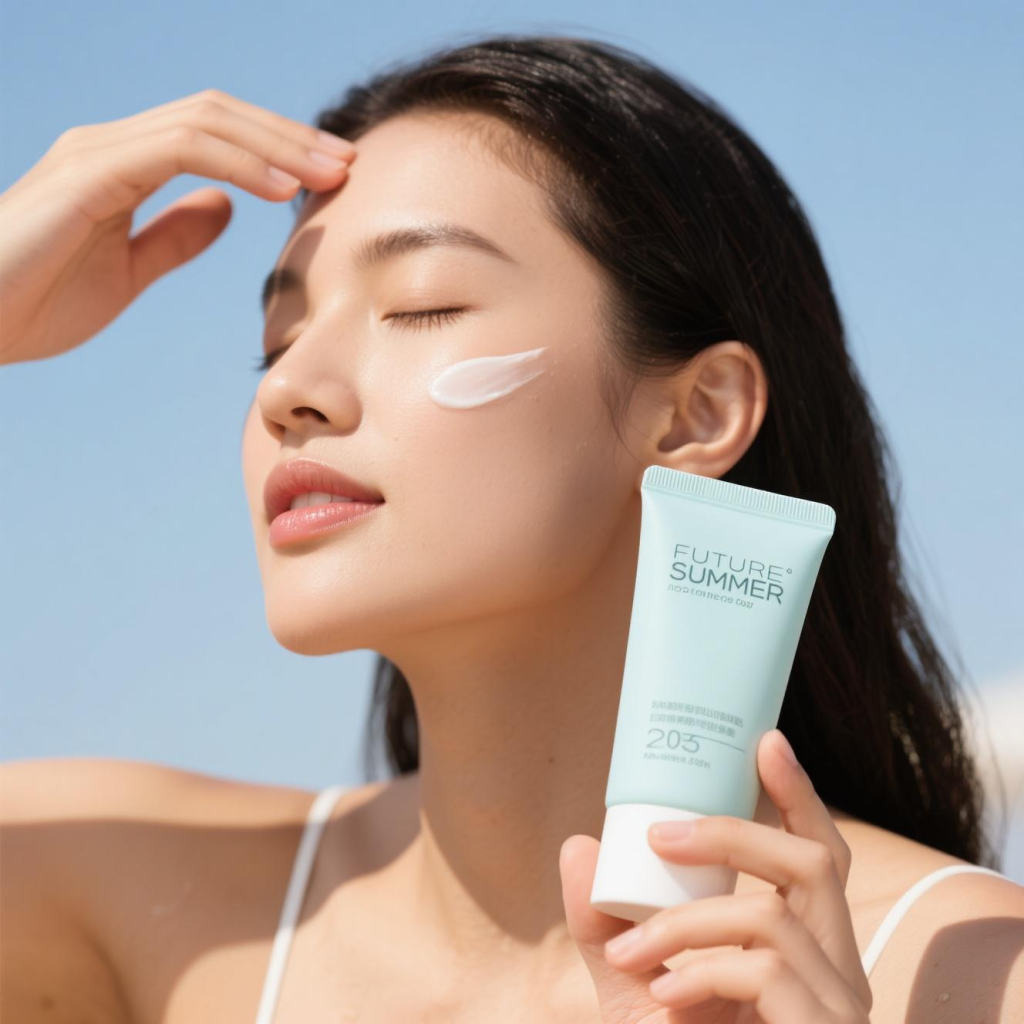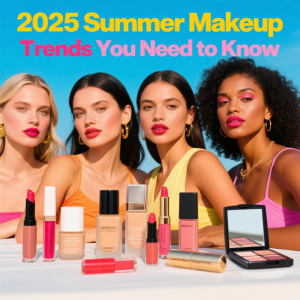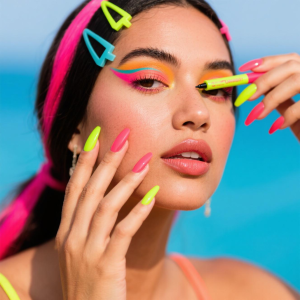
Summer 2025 isn’t just about hotter days and lighter clothes. It’s also shaping up to be a pivotal moment in how we care for our skin when the heat is on. Gone are the days of slapping on a thick SPF and hoping for the best. Today’s summer skincare is smarter, more intuitive, and built to adapt to the realities of rising global temperatures, hectic travel schedules, and real-time skin stressors.
What makes this season different isn’t just the products—it’s the mindset behind them. There’s a sense that consumers aren’t just looking for hydration or oil control anymore. They want dermatologist-recommended sunscreens, yes, but also AI-powered skincare, microbiome-balancing serums, and formulations that can keep up with the unpredictability of both the weather and our lives.
Earlier this spring, I found myself in the Mojave Desert on a work retreat, surrounded by tech entrepreneurs and skin-savvy founders alike. There, under a sun that felt far too intense for March, I tried my first adaptive SPF serum—a product that changed its UV protection index based on environmental exposure. Within hours, my skin wasn’t just protected; it felt cool, plump, and strangely energized. I’d brought my usual moisturizer just in case. I never even opened the jar.
This isn’t a one-off experience. The rise of adaptive skincare technology is rewriting the rules. Think formulas that sense heat and adjust viscosity, or moisturizers with blue light protection that become more potent the longer you’re in front of a screen. A friend of mine who works remotely from Greece told me she’s been using a hydration mist that responds to air quality data pulled from her GPS location. When wildfires swept through nearby towns last summer, the mist—containing antioxidants like vitamin E and polyglutamic acid—offered a noticeable difference in how her skin felt and looked.
And while innovation is exciting, there’s a distinctly human thread running through it all. We’re seeing a shift from performance-only skincare to products that feel like self-care rituals. Many people I know are finally moving away from over-exfoliating or layering too many actives. The philosophy now? Smarter, not harder. My roommate, who used to double-cleanse religiously every night regardless of the season, recently switched to a barrier-repairing cleansing balm that keeps her skin calm even on the stickiest nights. And her summer breakouts? Practically gone.
One of the most talked-about advancements in summer skincare right now is the explosion of biome-friendly sunscreens. These go beyond just being reef-safe; they’re formulated to respect the delicate microbiome of your skin while still offering broad-spectrum protection. If you’ve ever felt that tight, itchy sensation after applying sunscreen on a hot day, you’re not alone. I used to dread applying SPF during hikes, but now I keep a zinc oxide sunscreen infused with probiotics in my backpack that not only shields me from UV rays but also keeps my skin smooth and calm throughout the trek.
Another category that’s blossoming in 2025 is hydrating skincare with SPF. The old narrative of layering a moisturizer, then SPF, then setting powder is fading fast. Now, you can find products that combine all three—lightweight hydration, potent sun protection, and even a touch of mattifying blur for the T-zone. I’ve started using a tinted SPF serum on workdays that gives me just enough coverage to feel put-together on Zoom, while also protecting me from UV and HEV light. It’s replaced my foundation on most days, and the glow it leaves behind is that perfect lit-from-within finish we all chase in the summer ☀️
What’s also notable this year is the influence of climate on skincare habits. More people are traveling, but they’re also encountering more extreme weather. A friend who recently spent two months in Southeast Asia said she had to completely rethink her skincare routine. Instead of packing traditional heavy creams or exfoliators, she relied on gel-based moisturizers, hydrating ampoules, and lightweight skin barrier sprays. She swears the switch saved her from the constant cycle of heat-induced breakouts followed by dry, irritated patches.
And while hydration is always at the forefront, 2025 has brought new players into the mix—like electrolyte-infused skincare. Just like our bodies crave electrolytes to stay balanced in the heat, our skin does too. I tried a face cream with potassium, magnesium, and calcium during a particularly sweaty heatwave in July. It didn’t just feel nice—it kept my skin balanced even after a full day in the sun and hours of air conditioning. That night, when I looked in the mirror, my skin didn’t look stressed. It looked like it had been on vacation.
Beyond hydration and protection, people are paying more attention to skin longevity. There’s a boom in products that don’t just fix immediate concerns but support your skin for the long haul. Things like peptide serums for collagen support, DNA-repairing enzymes, and anti-inflammatory botanical complexes are showing up in summer formulas more than ever. These aren’t the heavy hitters you save for winter—they’re lightweight, breathable, and designed for daily use in warm weather.
Of course, all of this wouldn’t matter without the rising awareness of sustainable skincare packaging. In 2025, more brands are going refillable, biodegradable, and carbon-neutral. A skincare brand I follow recently launched a solid sunscreen stick in a paper tube—and it smells like cucumber and aloe. I tossed it into my beach tote without thinking twice, and it’s become a staple. Not only does it work beautifully, but there’s something so satisfying about using a product that doesn’t leave waste behind. It makes caring for your skin feel like caring for the planet 🌍
Community also plays a huge role in how people are choosing their summer skincare these days. TikTok, Reddit forums, even Slack channels at work have turned into mini focus groups. People swap product reviews like recipes—only these recipes are for surviving July humidity or post-surf redness. Last week, a colleague of mine mentioned using calamine lotion as a summer primer before foundation to prevent sweat-induced shine. At first, I laughed. Then I tried it before a barbecue, and to my surprise, my makeup didn’t budge. That kind of crowd-sourced wisdom is just as powerful as any dermatologist tip.
We’re also witnessing the rising popularity of custom skincare based on weather tracking apps. That might sound sci-fi, but it’s becoming real. There are now services that use your local UV index, humidity levels, and pollution data to recommend the best products for that exact day. One of my favorite features on a recent skin app was the “today’s skin stress forecast.” It told me to avoid exfoliation and stick to a calming mist and mineral SPF. I did, and my skin thanked me for it.








